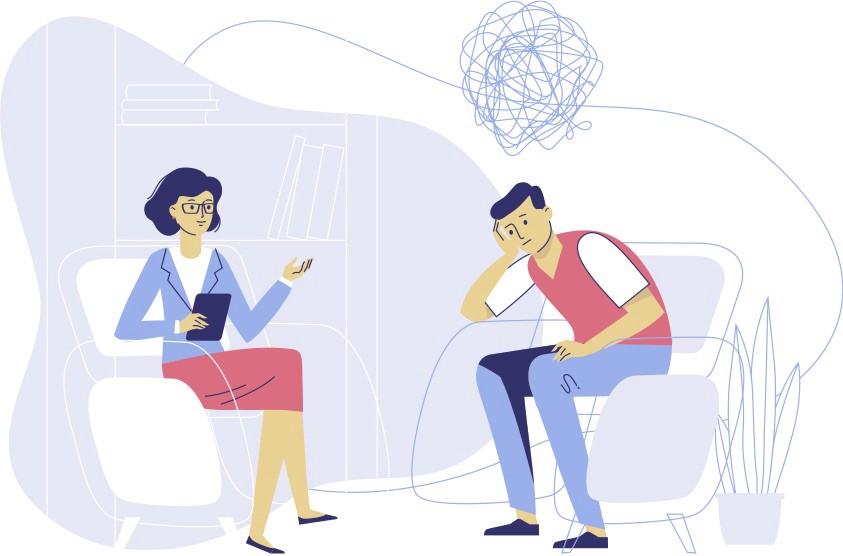Treatments
Following an initial consultation with one of our Consultant Psychiatrists, we are usually able to offer a specific programme of treatment tailored to a client’s individual needs. The range of treatments that are available include:
-
Medication – Prescription of medication, including regular reviews for monitoring of therapeutic effects and telephone consultations for advice with a Consultant Psychiatrist.
-
Stress Management “Psycho-Educational and Life Style Issues”- our programme is designed to treat anxiety disorder, work related stresses, relationship difficulties and medical disorders such as hypertension, asthma, irritable bowel syndrome, premenstrual tension, postmenopausal hot flushes, migraine and diabetes. We offer a package of six stress management sessions to clients on an individual basis or as part of a group.
-
Cognitive Behavioural Therapy – focuses on the way people think and act in order to help them overcome their emotional and behavioural problems. A central concept in cognitive behavioural therapy is that you feel the way you think and so it places great emphasis on thoughts and behaviour as areas to change and develop. Cognitive Behavioural Therapy can help clients overcome a wide range of psychological problems including anger problems, alcohol related problems, anxiety, depression, eating disorders, obsessive compulsive disorder, panic disorder, phobias and relationship problems.
-
Relationship and Interpersonal Therapy – a form of psychotherapy in which the focus is on a client’s relationships with peers and family members and the way they see themselves. Interpersonal therapy is based on exploring issues in relationships with other people.
-
Existential Psychotherapy – deals with felt emotions and certain core issues of human life such as death anxiety, search for meaning in life, anxiety related to making the right choice and responsibility Existentialism is helpful not only in reducing our stress levels but also increasing our capacity to tolerate stress.
-
Client Centred Therapy – also known as person centred therapy is a non-directive form of talk therapy whereby the therapist allows clients to lead the discussion and does not try to steer the discussion in any particular direction. The fundamental belief in client centred therapy is that people tend to move towards growth and healing and have the capacity to find their own answers.
-
Relaxation Therapy – can take many forms and can benefit most people, the use of relaxation therapy can help to reduce stress and improve mental and emotional well-being. We offer the following methods:
-
Progressive Muscular Relaxation is a specific technique for helping clients to reduce generalised anxiety and for reducing the frequency and duration of panic attacks. It was developed by Dr Edmund Jacobson more than 50 years ago. Clients learn how to alternatively tense and relax the muscles throughout the body to produce a deep state of relaxation.
-
Guided Imagery – sometimes known as visualisation is a technique in which clients imagine words, pictures, sounds and smells to evoke positive images, feelings and thoughts which help them to relax.
-
Biofeedback Treatment – through the use of Bio-feedback equipment; including electronic devices and computer assisted software, clients can be taught to recognise the physiological signs of stress. Biofeedback is used specifically to monitor and measure physiological states such as heart rate, pattern of the respiration, muscle tension and skin conductivity. Clients then use this information to understand and control their unconscious and physical reactions to stress. Through this awareness they can develop techniques that better allow them to manage and reduce their stress levels. Techniques such as breath regulation and heart- rate synchronization teach clients how to balance their physical, mental and emotional states.
-
Breath Regulation Techniques including the following:
-
Mindfulness Meditation – is a practice which works mainly through withdrawing our attention from distracting thoughts and redirecting it to our breath and physical sensations. By doing so we put less energy into the emotional states of restlessness, anxiety, and craving that drive those thoughts. It also helps us neutralise the emotionally charged negative experiences suppressed in the unconscious mind. Over time the mind becomes calmer and our emotional state becomes more balanced and positive.
a. Abdominal Breathing – encourages clients to breathe fully from the abdomen, not the chest and involves using the diaphragm. It leads to vagal nerve stimulation and increased heart rate variability thereby bringing sympathetic and parasympathetic nervous systems in harmony with each other. Abdominal breathing has been found to help those who suffer from anxiety, panic attacks, hypertension and irritable bowel syndrome.
b. Paced Breathing – Paced breathing is about prolonging the expiration which leads to improved heart condition and it has been found useful in hypertension, postmenopausal hot flushes, anxiety and panic disorders.

